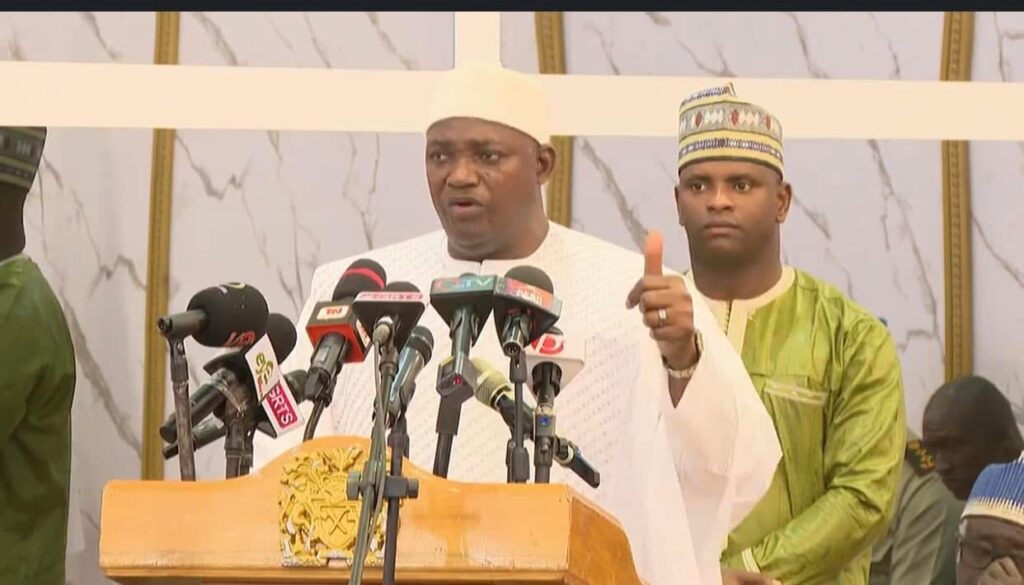
By Ramatoulie Jawo
His Excellency President Adama Barrow has emphasized the need for national unity and peace as essential pillars for The Gambia’s development. He made these remarks during a meeting with Banjul Muslim elders at the State House in Banjul following Eid prayers.
President Barrow noted that the progress witnessed in developed nations stems from their commitment to peace and unity. He stressed that maintaining stability should not solely be the government’s responsibility but a collective effort that begins at home, with parents guiding their children toward peaceful coexistence.
“I want Gambians to come together and support one another in maintaining peace. If we have peace, The Gambia will move forward. We admire developed countries, but it is their peaceful environment that enables their progress,” President Barrow stated.
He called on religious leaders to use their influence to promote unity rather than discord, highlighting their crucial role in fostering social harmony. He acknowledged that while some governments regulate religious sermons, The Gambia upholds freedom of expression in places of worship. However, he cautioned religious leaders to be mindful of their messages to prevent divisions within society.
“In some countries, the government dictates sermons, and imams must follow them precisely. Any deviation could lead to consequences. But in The Gambia, religious leaders have the freedom to deliver their sermons without interference. However, some messages can incite chaos, and we must be mindful of that,” he warned.
President Barrow further urged religious leaders to avoid using sermons as platforms for criticizing government policies or discussing issues they may not fully understand. He emphasized the importance of responsible discourse that fosters unity rather than division.
“While truth is important, certain truths can be sensitive and may lead to conflict. It is crucial to approach such topics with caution to maintain harmony. Some individuals use their sermons to criticize the government and its policies or discuss issues they do not fully understand,” he said.
Additionally, he commended business owners for their role in stabilizing food prices during Ramadan. He acknowledged that essential commodities such as rice, sugar, and cooking oil remained affordable, with sugar prices dropping from D2,600 to D2,400 and rice prices decreasing from over D2,000 to just about D1,700 to D1,900.
